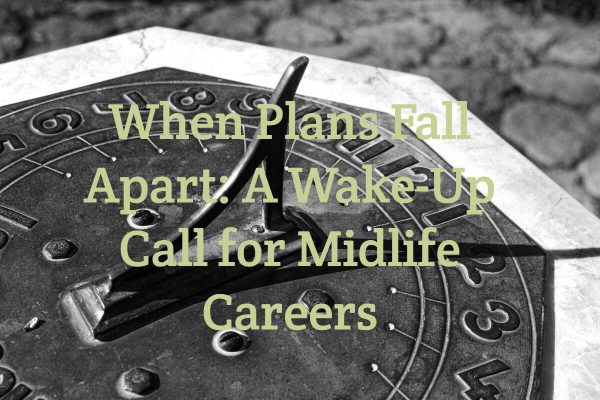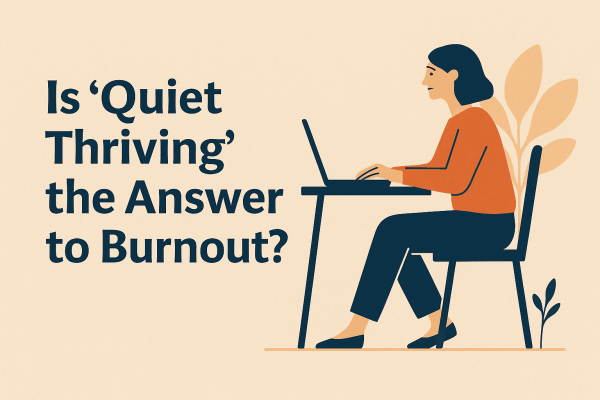It’s Not Just for the Young: How Older Workers Can (and Should) Use AI
I’m nearly 68, and I’m still learning, not because I have to, but because I want to stay curious. This piece isn’t about technical skills. It’s about Older workers and AI and how we decide what role AI plays in our work and lives, and why age should never be seen as a barrier to that conversation.
The Rise of AI, and the Fear Around It
Microsoft’s recent announcement that it’s cutting 9,000 jobs, while investing billions into AI, will undoubtedly raise anxiety across the workforce. Not just for young people entering a tougher job market, but for older workers who may already feel sidelined by technology.
Some headlines focus on automation, replacement, and loss. And yes, the rise of generative AI is changing how work is done. But this isn’t a shift that only affects one age group. It’s reshaping things for all of us, and how we respond matters just as much as what’s changing.
This Is New for Everyone
Let’s pause here. There’s no reason older people should be inherently “behind” when it comes to AI. This isn’t a case of needing to catch up with younger colleagues who’ve been using these tools for decades. Most of them haven’t.
The tools we’re now seeing, from ChatGPT to GitHub Copilot, are new to all of us. Whether you’re 28 or 68, we’re all in a learning phase. That means curiosity and adaptability matter more than age or job title.
Older workers and AI – How I Use AI (and How I Don’t)
Let me be clear: I don’t use AI to create my work. The ideas, the voice, the tone that’s me. Writing is how I think, reflect, and make sense of the world. But occasionally, I’ll bring in AI to act like a sounding board. I might ask it to summarise a passage I’ve already written or help me check flow or structure. At times, it offers alternatives I can review, not to replace my words, but to help sharpen them.
I’ve spent time training the tools I use to recognise my voice, because sounding like me matters. If something doesn’t feel right, I don’t use it. And I never hand over creative control. The process remains mine. AI simply works in the background, in small ways, when it helps me think more clearly or save time.
That’s the key difference. I see AI not as a creator, but as a tool. One that sits quietly behind the scenes, used thoughtfully and on my terms.
Why Curiosity Matters More Than Code
What I notice most is that curiosity, not technical skill, is the key differentiator. I speak to plenty of people in their 50s, 60s, and beyond who are curious about how AI might support their work or hobbies. But others dismiss it entirely or avoid engaging with it. Not because they can’t, but because they’ve already decided it isn’t for them.
This isn’t just about AI. It’s about how we meet change. Do we dig in, stay small, or opt out? Or do we lean in, experiment, and ask questions?
Yesterday I was speaking to someone who said, quite plainly, “I’m just not curious. I’m not really interested in anything.” I was taken aback. Most people I know are curious. But perhaps that’s a bias of my world. And maybe that’s a conversation for another piece.
We Get to Choose How We Engage
Whether you’re a programmer, coach, teacher, or small business owner, AI is becoming part of the landscape. That doesn’t mean we have to hand over everything we do. But it does mean we should understand the tools that are shaping our world.
For older workers especially, this can be a powerful stance: not to fear the tools, but to decide how we use them. With intention. With curiosity. With our values intact.
Because the real danger isn’t in learning how to use AI. It’s in assuming we don’t belong in the conversation.
Reflective Questions
- How are you currently using AI, or avoiding it, in your work or life?
- What would you like to explore, if the pressure to “get it right” was removed?
- What values or boundaries guide how you engage with new technologies?
I write as someone deeply interested in later-life identity, reinvention, and the future of work. AI is part of that picture now, and I believe we all have a role to play in shaping how it fits. I’d love to know how you’re using it, what you’re wary of, and where you see potential.





